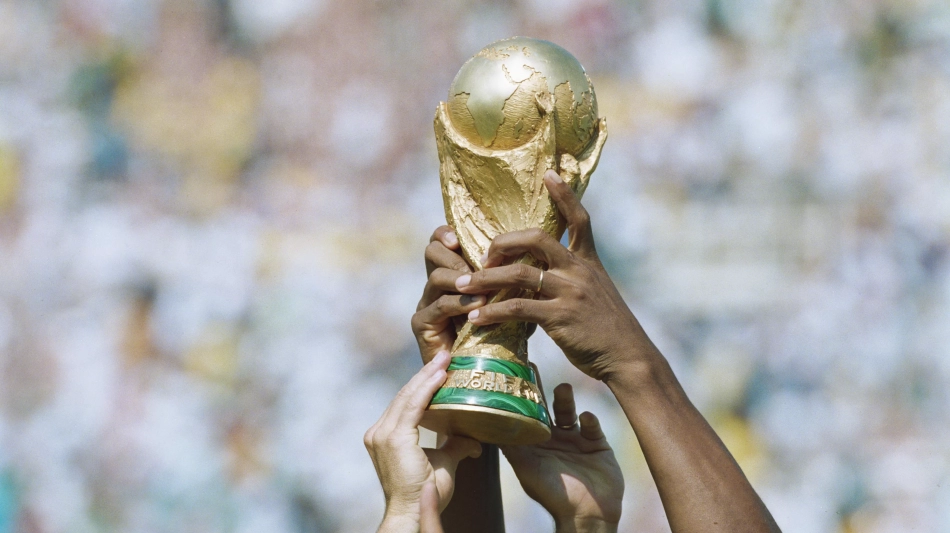Of the 900 World Cup matches played since 1930, there have been some pretty amazing matches whose memories remain forever in the minds of all football fans.
From amazing goals to spectacular moments, these matches have helped in scripting the history of the World Cup and also aided in endearing the beautiful game to the hearts of all people across the world.
While some of these games were simply too good to forget, there are others, however, that fans wish they never watched. Matches that could at best be described as sheer waste of time and money, not only because of the results but also because of how the teams performed, among others.
Here, we have put together five of the greatest and worst matches in the history of the FIFA World Cup.
FIVE GREAT MATCHES
1950 – Uruguay 2 vs Brazil 1
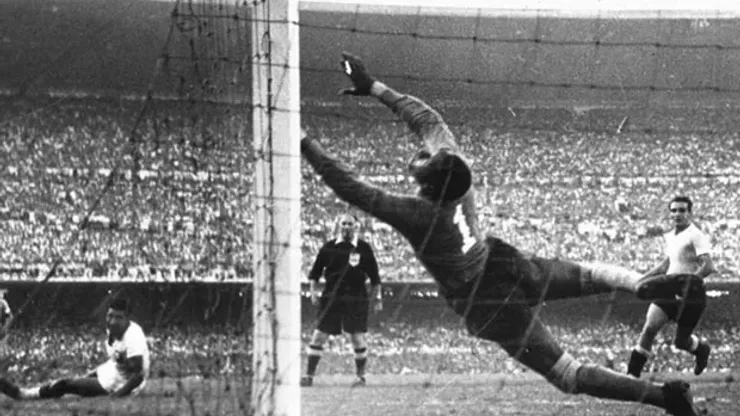
The final match of the 1950 World Cup, played at the famous Maracanã Stadium, an arena purposely built for the tournament, has been described by many as one of the greatest matches in the history of the FIFA World Cup. This was one match that sent shockwaves around the world and was termed a "national tragedy" in Brazil, with one distressed fan committing suicide due to Brazil's loss.
The format back in 1950 was slightly different, with the winners of the four groups going into another group stage to decide the winner.
Although the Uruguayan team was formidable in 1950, the Brazilian team was widely considered to be superior, and the Brazilians believed in their team’s ability to win their first championship.
Going into the match, Brazil only needed to draw to win the World Cup after beating Sweden and Spain 7-1 and 6-1, respectively. They were confident of victory, with many of the local newspapers printing their victory early. The mayor of Brazil and Jules Rimet, the president of FIFA and the founder of the World Cup, had prepared a congratulatory speech for the Brazilian team. But Uruguay had other ideas.
In the 66th minute of play, Uruguay’s Juan Schiaffino cancelled out Friaça’s 47th-minute strike for Brazil before Alcides Ghiggia won the game for the Uruguayans in the 79th minute with a superb goal to silence the 200,000 fans at Maracanã.
Pele, football’s first global star, broke down in tears after the game. He would then go on to win three of the next five World Cups.
1966 – Portugal 5 vs North Korea 3
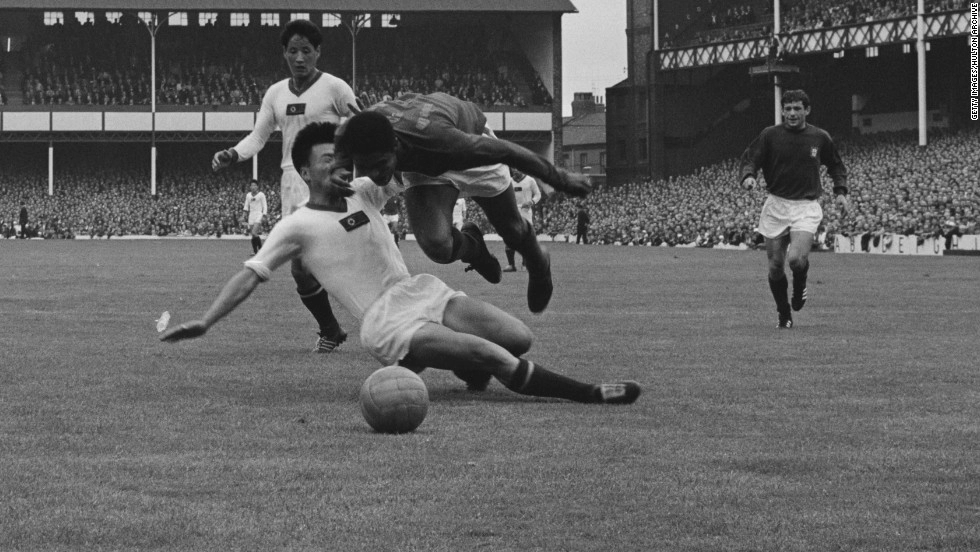
This was one match that showcased the brilliance of the legendary Eusébio.
With Portugal, three goals down to the North Koreans within 25 minutes of play in the quarter-final clash, no one expected to see a change in fortune for the Portuguese at Goodison Park against an opponent who had earlier stunned the world by beating Italy.
But Eusébio took the game by the scruff of the neck and reduced the lead in the 27th minute. He then got Portugal back to 3-2 with his first penalty on the stroke of halftime.
Nine minutes into the second half, he completed his hat trick with a fine effort to level the score, and with just under an hour on the clock, he won and converted a penalty for his fourth goal. With 10 minutes to play, North Korea’s resistance was brought to an end as Jose Torres headed home following a corner to complete a remarkable and famous comeback for the Portuguese.
1982-Italy 3 vs Brazil 2
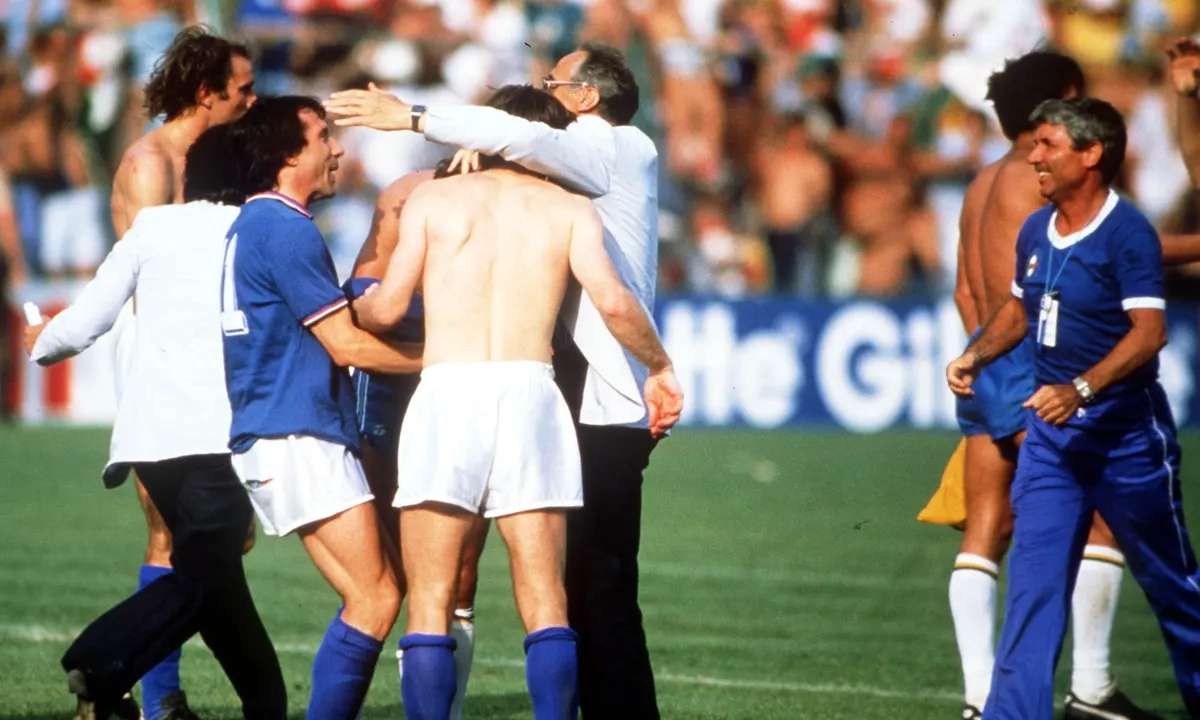
Italian striker Paolo Rossi was controversially selected to don the shirt for the World Cup after just returning from a two-year ban following his involvement in the Totonero 1980 match-fixing scandal, despite objections from some powerful voices in Italy.
The concerns seemed justified as the Juventus striker had been just a peripheral figure in Italy’s opening exchanges at the tournament till this final second-round group stage match in Group C against the Brazilians.
Both sides had progressed serenely enough to this point, but Brazil were the favourites in a match that would decide who went through to the semis. Sublime play and spectacular goals also made Brazil the preferred choice for the neutrals, but the hitherto absent Rossi opened the scoring on five minutes. The best goal of the game, unsurprisingly, came from Socrates' boot, leveling the game at 1-1, but normal service was far from resumed as Rossi fired in again to give the Italians a 2-1 lead at half time.
Another memorable effort from Falcao made it 2-2, but that man Rossi had the final say, completing an unlikely hat-trick that set him on his way to an even more implausible Golden Boot.
1986 - Argentina 2 vs England 1
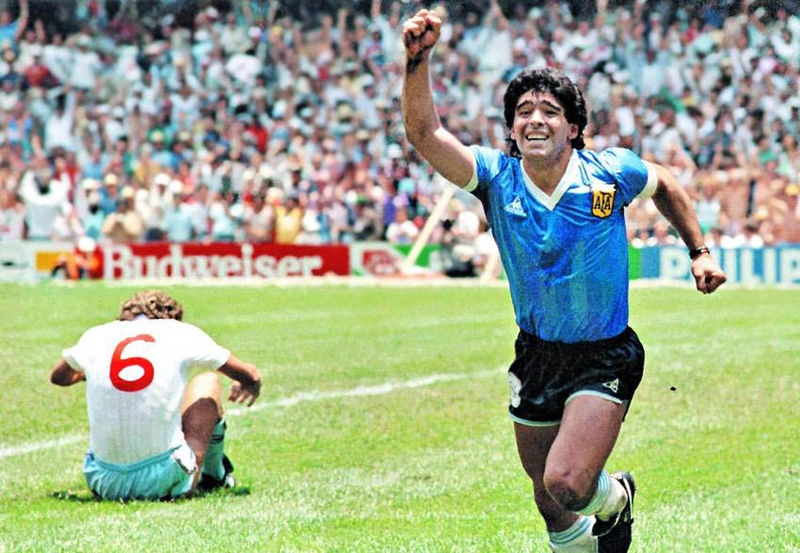
English fans still remember this match to this day for the pain inflicted by a little genius from Argentina, Diego Maradona, on the squad regarded as one of the best to wear the "Three Lions" shirts, and a team highly expected to end the 20-year wait for another World Cup title after the Wembley feat of 1966.
After a slow start to the tournament, Gary Lineker had found his shooting boots, and following a comfortable win over Paraguay in the round of 16, Argentina was there for the taking.
The match, however, is to be remembered for the announcement of Maradona on the greatest stage of all. Every side of the magician’s character was summed up in his two goals: God claimed an assist for the first, before a genius-like run and finish doubled the lead, and in five short second-half minutes, one of the most famous games in World Cup history was over as a contest.
Speaking of ingenuity and the spectacular, the match had it all, and Diego Armando Maradona was the conductor who orchestrated one of the greatest exploits in World Cup history on this sunny day of June 22, 1986, in Mexico City.
1954 - West Germany 3 vs Hungary 2
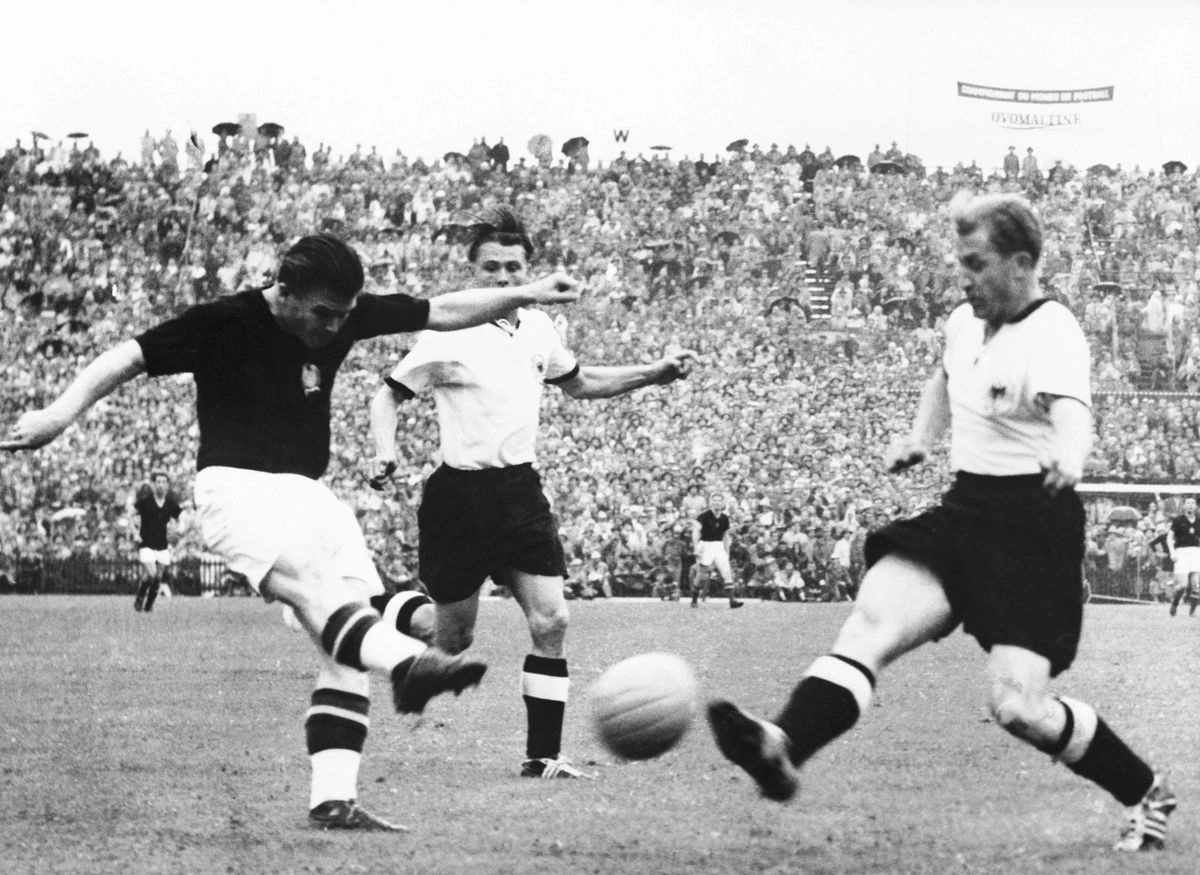
The "Miracle of Bern" as the final of the 1954 tournament was famously called, is regarded as one of the greatest matches in World Cup history. It is also one of its most unexpected upsets.
The tournament, hosted by Switzerland, was the first to be televised live and the first to be immortalized in an official film. Thus, making it the first "global" FIFA World Cup tournament in that context.
Before the competition — indeed, before all but the last six minutes — the outcome was certain: Hungary would be champions. For a full four years, they were dominant, winning 24 and drawing four of 28 games, scoring 119 times in the process. Their winning margins were more interclass than international.
Like many of their previous games, it all started predictably enough, with Ferenc Puskás and Zoltán Czibor giving the Hungarians a 2-0 lead inside eight minutes, and a tenth-minute reply from Max Morlock did little to suggest that another 8-3 defeat wouldn’t be on the cards.
The equaliser, via Helmut Rahn, was, therefore, something of a shock with the world expecting Hungary to maintain and build on their lead. In the second period, the Hungarians came out with an attack on their mind but came up against the kind of resolute defending that German sides have since become renowned for. With no way through, the underdogs capitalised, with Rahn getting his second of the game.
FIVE WORST MATCHES
1982- West Germany 1 vs Austria 0
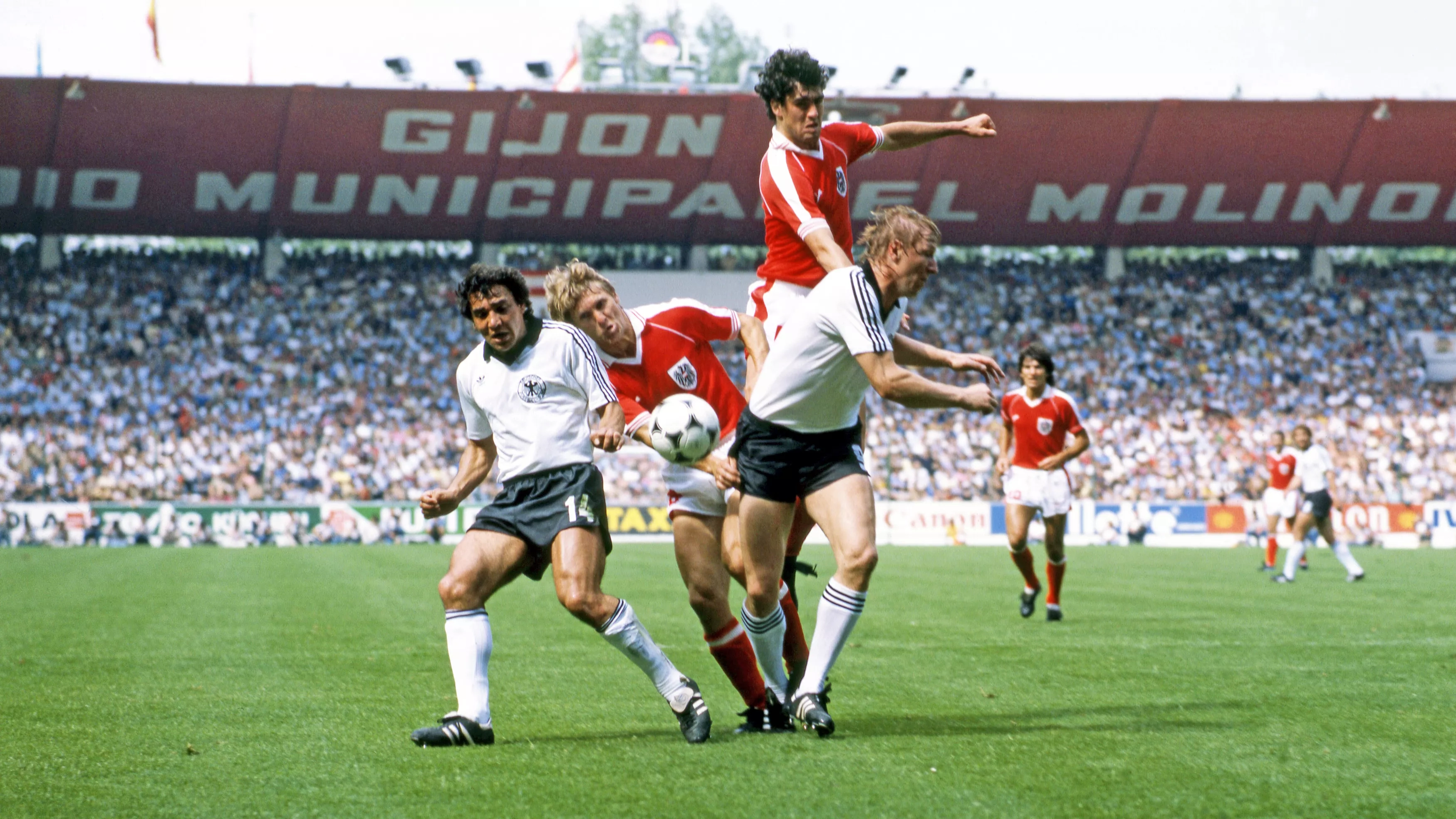
The "Disgrace of Gijón" is arguably one of the worst, if not the worst, matches in the history of the FIFA World Cup. The match, the last game of the first-round Group 2, has aptly been tagged by many as "the day when the world wept for Algeria" due to the alleged collusion between West Germany and Austria, which prevented Algeria from becoming the first African team to reach the second round of a World Cup.
Algeria was assured of advancing after defeating Chile 3-2, unless the group's final game, to be played the following day, ended in a one-or two-goal win for West Germany over Austria, in which case both the European teams would progress at Algeria's expense.
In the 10th minute of that match, Horst Hrubesch put the Germans in front. Then, nothing happened. Realising the scoreline suited both of them, Germany and Austria effectively stopped playing. In the ensuing 80 minutes, there were no shots, and barely any tackles, crosses or sprints. The game was no longer a contest, it was a conspiracy. The teams' cynicism provoked universal scorn.
As a result of the match, and similar events at the previous World Cup in Argentina, FIFA revised the group system for future tournaments, so that the final two games in each group would be played simultaneously.
2018 - Denmark 0 vs France 0
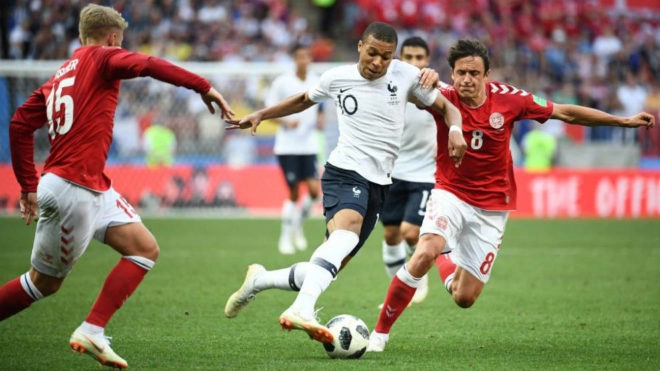
Football fans across the globe reacted with humour and anger to "one of the worst World Cup games ever" as Denmark and France played out the first goalless draw of the tournament on Tuesday, June 26.
The last match in Group C of the 2018 FIFA World Cup in Russia between the Danes and eventual winners France was one of the least compelling games of the tournament, and it drew many boos from the fans in Moscow’s Luzhniki Stadium for the lacklustre performance from both sides.
France coach Didier Deschamps made six changes to the starting XI that beat Peru 1-0, and his side happily played out a mutually beneficial stalemate with Denmark, which saw the Scandinavians reach the last 16 for the first time since 2002.
Neither team had much to play for and, after the nil-fest, both advanced to the knockout stage, with France leading the group and Denmark second. With Australia losing to Peru, there was no real reason for either team to strive to end the World Cup’s first scoreless tie in 38 matches.
1982- Hungary 10 vs El Salvador 1
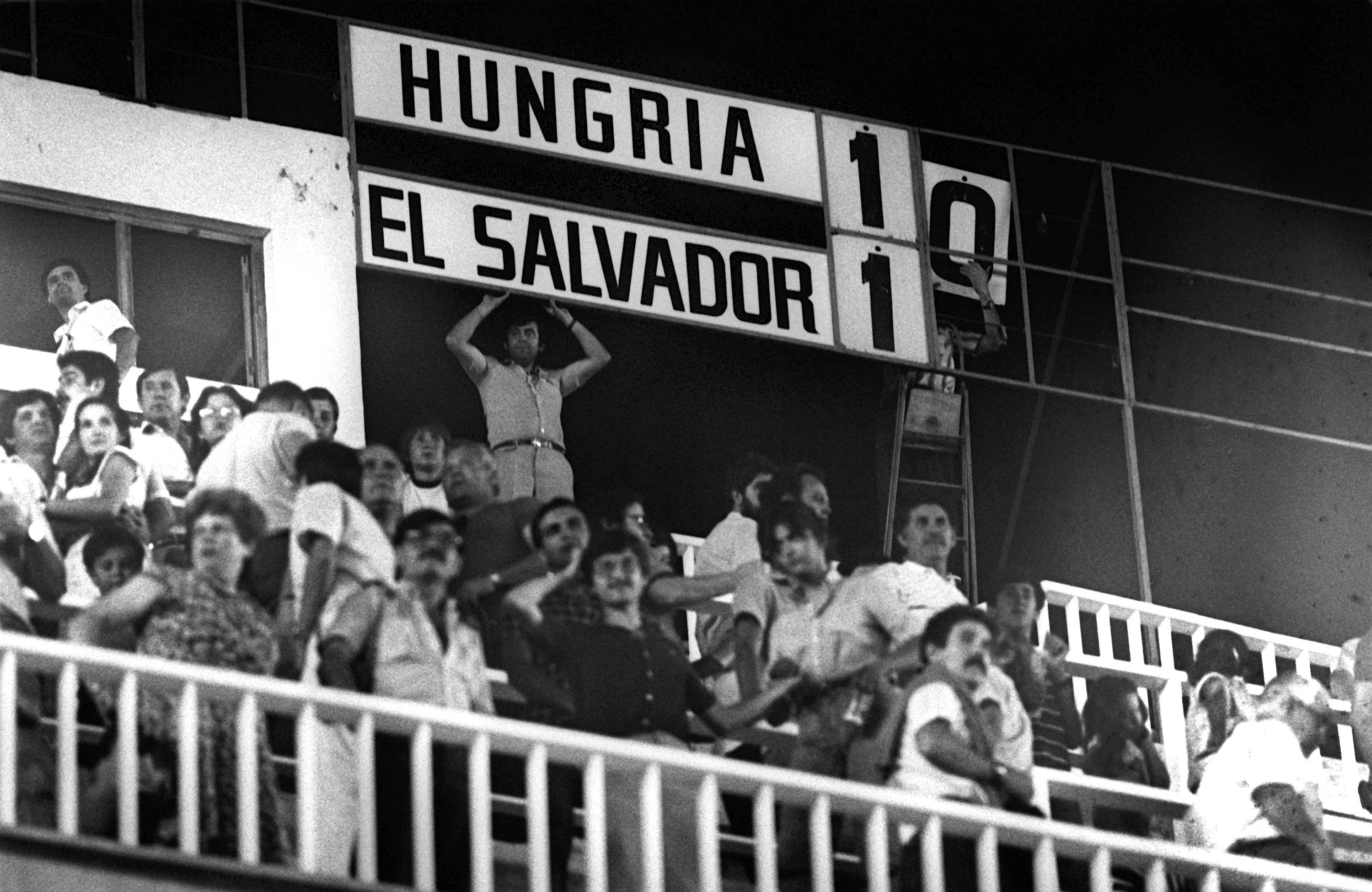
Only two other matches, Yugoslavia 9 vs Congo DR 0 (1974) and Hungary 9 vs South Korea 0 (1954), can be mentioned in the same breath as this match for their extra-high scorelines. However, the second game to be played in Group 3 of the first group stage at the 1982 FIFA World Cup is regarded, for obvious reasons, as having the biggest scoreline in FIFA World Cup finals history.
It was not a match but a massacre as the Hungarians mercilessly put to the sword "La Seleccion", who were making their second appearance at the World Cup after their 1970 debut.
Hungarian substitute László Kiss scored a hat-trick, the only World Cup hat-trick by a substitute, and the fastest ever in a World Cup, in the space of seven minutes, while László Fazekas and captain Tibor Nyilasi hit a brace each. Gábor Pölöskei, József Tóth and Lázár Szentes also registered their names on the scorers’ sheet, while the consolation goal for the Salvadorians came from substitute Luis Ramrez Zapata in the 64th minute.
2006 - Switzerland 0 vs Ukraine 0 (0-3 after penalty shootout)
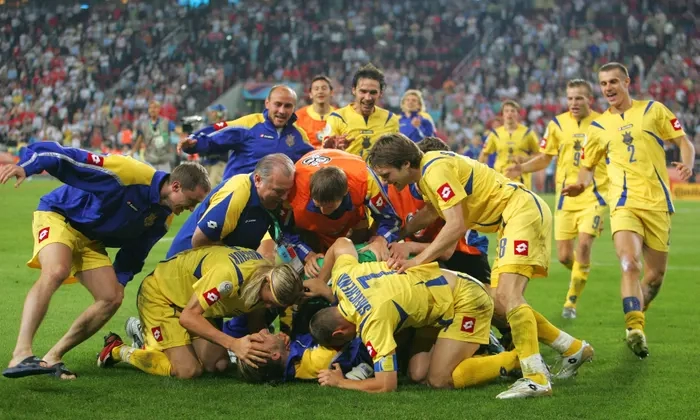
With Switzerland and Ukraine competing for a place in the quarter-finals, no one could have predicted the disgusting performance put up by both teams at the 2006 World Cup in Germany.
That neither of the teams could find the net after 120 minutes of play seemed appalling enough, but for Switzerland not to have been able to score just one goal in the resulting penalty shootout took the word drab to another level.
Despite Ukraine winning 3-0 in the penalty shootout, such was the lifelessness of the match that even FIFA’s technical report struggled to find a positive angle. It described it as a "scrappy affair devoid of highlights [with] too many misplaced passes by both sides [meaning] the game could never develop any genuine flow."
The match has been tagged by many as the "dullest in World Cup history".
2014 - Spain 1 vs Netherlands 5
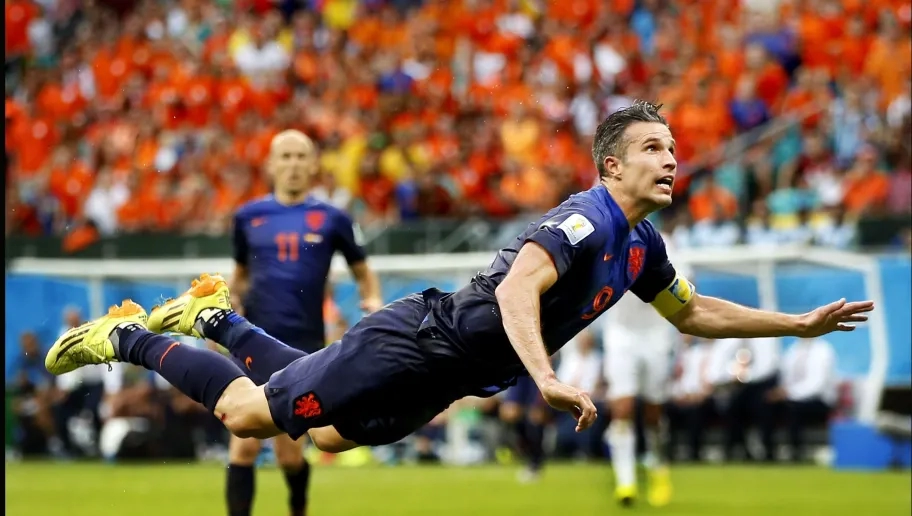
The 2010 champions, Spain, bagged the unenviable record of the worst loss ever by a defending champion at the 2014 tournament in Brazil when they were walloped 5-1 by the Netherlands with an inspiring performance by former Arsenal star Robin Van Persie, who got a brace alongside the mercurial Arjen Robben.
Persie's wonderful diving header from 15 yards that the hapless goalkeeper Iker Casillas could only watch as it dropped perfectly into the net was one of the signature performances of the night.
Spain, looking to win a fourth consecutive major international trophy, was humbled and humiliated in the repeat of the 2010 World Cup final. The last time they conceded five goals in an international match was in 1963.
The full-time whistle was met with scenes of Dutch joy and Spanish woe, on the turf and in the stands. The Netherlands embarked upon a lap of honour.
It is a result that will send shockwaves through world football.

